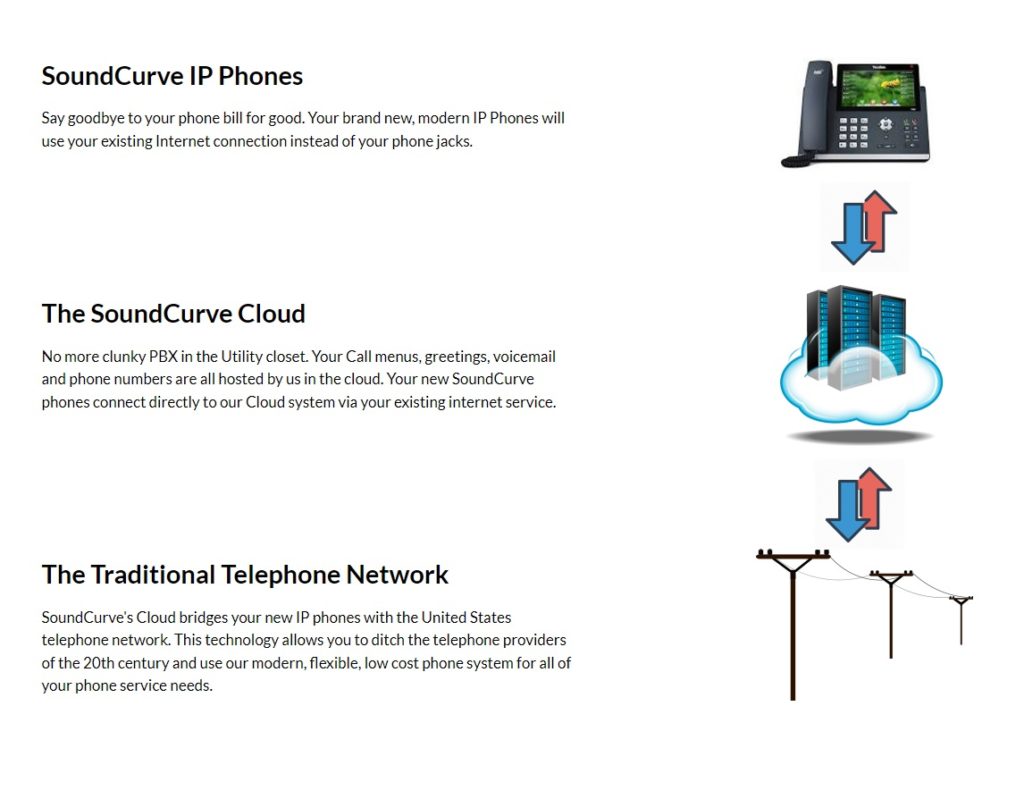
Good VoIP Infrastructure Leads To Service Stability
In the early stages of VoIP service one hold up to adoption of the service was the dependency on having a reliable internet service to use it. Without a reliable and fast internet service, the quality of the VoIP service was very uncertain and it was difficult to maintain call continuity in the event of an internet outage. Today however, better business and home internet service along with enhancements to VoIP infrastructure have vastly improved the reliability of the service. These updates have made VoIp service a viable option for most people. In addition to the increased quality in internet service, VoIP architecture design has also made many of the early issues surrounding the service a thing of the past.
Maintaining Stability- Call Continuity
One of the biggest needs of a business using VoIP service is a way to ensure business call continuity. When the internet service goes down for your company, the connection with the VoIP phone is lost but the VoIP service is still up and running. It is important that the VoIP service used for your business has a way to ensure no calls are missed. When evaluating VoIP systems, you should ask providers if they offer call continuity and system redundancy features. These features automatically forward calls in real time to designated mobile phone numbers if your Internet service fails. Having these features included into your VoIP system will help ensure that no important business phone call is ever lost.
Maintaining Stability- Built In System Redundancy
If your organization depends on phone calls for sales and service orders, it is critical to have a way to get those calls even during an outage. VoIP providers have begun leveraging modern architecture design and cloud technology to ensure redundancy is built into the system. Many PBX systems are running in a cloud technology environment to help ensure that they never go down. Many systems also incorporate disaster routing so that if the system cannot connect to your network within a specified timeframe, the call is automatically routed. Calls can be automatically routed to one of multiple other systems specified by the user, which can be another private telephone network or cell phone numbers provided by the user. Calls may also be routed to an answering service, or to a dedicated message service and can even be placed on hold in a queue to wait until the internet comes back. VoIP service can now be architected in a number of ways depending on the needs of the user to maintain stability.
VoIP Provider Technology Is Crucial
When searching for a VoIP provider it is extremely important to understand the type of infrastructure the provider employs and how it is architected. Experienced, modern providers employ the latest technology and programming capabilities to ensure VoIP service stability is maintained. Call continuity and infrastructure redundancy should be priorities for any VoIP provider you select. Most companies like SoundCurve understand the importance of keeping your VoIP service stable. At SoundCurve, our PBX systems are backed up across multiple locations. If one of these locations goes down then the other should pick up the service without any impact to your business service needs. Our system is designed with resilience and disaster recovery in mind to ensure minimal impact of any potential outage you may experience.
